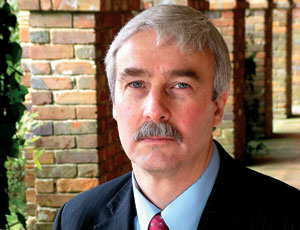The U.K. government has come under fire for delaying implementation of tough new anti-graft legislation that had been due to take effect this April. But construction and other industry sectors welcome the government’s recently announced review of guidelines on how the law will be applied. “We are working on the guidance to make it practical and comprehensive,” says a Ministry of Justice spokesman. He would not speculate as to when the new guidance would be released but says the law will take effect three months after that.

The Bribery Act, passed last year, makes it a corporate offense for a business to fail in preventing bribery by people working on its behalf anywhere in the world. While existing legislation imposes seven years of imprisonment for bribery, the new law would raise the penalty to 10 years. To avoid conviction, executives must show they have adequate procedures in place to prevent bribery.
The construction industry broadly supports the new law “on the basis that we need to have clarity,” says Neill Stansbury, co-founder and a director of the Global Infrastructure Anti-Corruption Centre, Old Amersham, U.K. He and his wife and partner, Catherine Stansbury, were named 2007 ENR Newsmakers for their efforts to raise awareness of corruption-fighting tools in construction.
Though far from a company’s headquarters, a bribe paid abroad could land directors in jail “even if [they] don’t know about it,” adds Stansbury. But he admits that, for example, the distinction between corporate hospitality and bribery remains unclear. New guidelines should “clarify the rules for areas like hospitality and third-party services to ensure that people who are engaged in legitimate activities are not caught out,” notes Katja Hall, director of employment policy at the Confederation of British Industry, London.
But delaying the legislation’s implementation risks the U.K. being seen as “soft on international corruption at a time when most major economies are moving to address this problem,” adds Eoin O’Shea, head of the anti-corruption group at Lawrence Graham LLP, a London-based law firm.
The U.K. is one of 38 nations bound by the Organisation for Economic Cooperation and Development’s (OECD) Anti-Bribery Convention to implement criminal legislation against graft. The U.K.’s delay worries Nicola Bonucci, director of legal affairs for Paris-based OECD, who told a recent business roundtable in London that corporate concerns about the law were exaggerated. “[The law is] good for the business that wants to compete on a fair, level playing field,” he claimed.
To help companies develop bribery-prevention procedures, work has begun to create a new British regulation, which is set for official publication around the end of 2011. Much information and guidance exists on dealing with corporate corruption, but “there are no other standards in this area,” says Sara Walton, manager of the drafting committee at the British Standards Institute, London.
The standard will cover management systems that must be established to deter graft anywhere in a corporation or in its joint ventures. It is being modeled on existing standards that cover issues such as quality assurance and health and safety, says Walton. It will be “recognizable” to users and “dovetail” with their existing systems, she adds.


Post a comment to this article
Report Abusive Comment